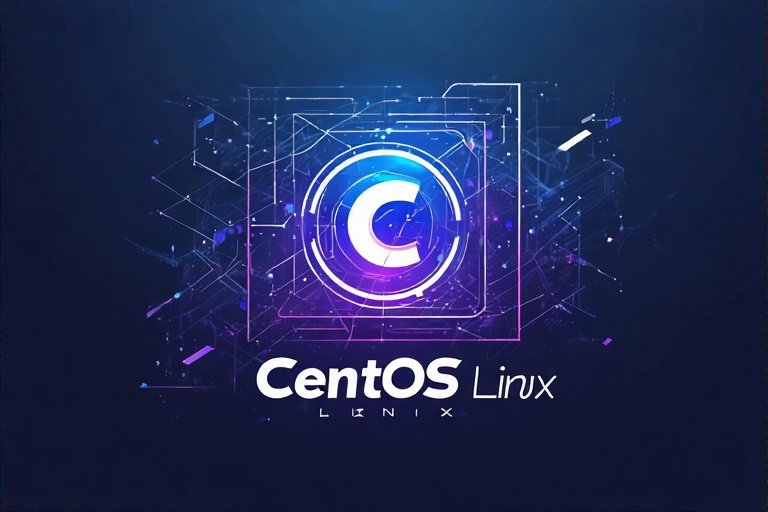
In the world of server hosting and enterprise computing, reliability and security are the foundation of every successful infrastructure. CentOS Linux has consistently proven itself as a trusted choice for businesses, developers, and organizations that require a stable operating system. Built on the same source code as Red Hat Enterprise Linux, CentOS Linux offers enterprise-level performance without licensing costs.
Companies like Cloudgigabits have integrated CentOS Linux into their hosting solutions, enabling clients to enjoy dependable systems optimized for modern workloads. If you’re looking for a strong foundation for cloud hosting or VPS deployment, learning the benefits of CentOS Linux is a must.
What is CentOS Linux?
CentOS Linux is a free, open-source distribution derived directly from the Red Hat Enterprise Linux (RHEL) source code. It mirrors the features, structure, and stability of RHEL while being available to users without commercial licensing fees.
This makes CentOS Linux especially popular in enterprise environments where system administrators need reliability and performance without paying premium subscription costs. Its long lifecycle support and strong security updates make it ideal for hosting providers and developers who want to maintain stability across their platforms.
Cloudgigabits often recommends CentOS Linux to clients running mission-critical applications because of its compatibility with enterprise-grade software and server technologies.
Key Advantages of CentOS Linux
CentOS Linux stands out because of the balance it provides between performance, cost-effectiveness, and long-term support. Some of its notable benefits include:
Enterprise Stability – Based on RHEL, it inherits a proven foundation trusted by global corporations.
Long-Term Updates – Versions often receive up to 10 years of support, ensuring security and performance.
Open-Source Flexibility – Administrators and developers enjoy freedom to customize without restrictions.
Security – Regular updates keep vulnerabilities patched, safeguarding sensitive workloads.
Compatibility – Supports enterprise-level applications, databases, and hosting technologies seamlessly.
These features make CentOS Linux an excellent operating system for businesses hosting servers, web applications, and cloud environments.
CentOS Linux in VPS Hosting
When it comes to VPS hosting, CentOS Linux is one of the most reliable distributions available. A VPS running CentOS provides a consistent environment for developers, web hosting companies, and IT professionals.
Here’s why CentOS Linux is widely used for VPS hosting:
Resource Efficiency – It uses system resources effectively, making it suitable for both small and large VPS setups.
Security-First Approach – Strong community support ensures rapid patching of vulnerabilities.
Compatibility with Control Panels – Tools like cPanel and Webmin work seamlessly with CentOS Linux.
Long-Term Server Uptime – VPS deployments remain stable for years without frequent reinstallations.
Ideal for Web Servers – Perfect for running Apache, Nginx, MySQL, and other server stacks.
Cloudgigabits leverages CentOS Linux VPS solutions to deliver consistent performance and long-term hosting stability for its customers.
CentOS Linux for Enterprises
Beyond VPS hosting, CentOS Linux has long been a favorite among enterprise IT teams. Businesses often rely on it for running large-scale infrastructure, databases, and application servers. Its similarity to RHEL makes it a cost-effective alternative without sacrificing quality.
Organizations that use CentOS Linux benefit from:
Stable kernel and system libraries
Broad support for enterprise software
Predictable lifecycle updates
Low operating costs compared to proprietary systems
For enterprises managing multiple servers, Cloudgigabits often recommends CentOS Linux because it balances the need for enterprise features with open-source freedom.
Best Practices for Using CentOS Linux
To maximize the benefits of CentOS Linux, administrators should follow a few best practices:
Regular Updates – Keep security patches current to prevent vulnerabilities.
Enable SELinux – Strengthen security with mandatory access controls.
Use Monitoring Tools – Tools like Nagios or Zabbix can track system health.
Automate Backups – Ensure business continuity with regular data backups.
Optimize Services – Disable unused services to improve speed and security.
Following these practices ensures a reliable and secure CentOS Linux environment for any hosting setup.
Common Mistakes to Avoid with CentOS Linux
While CentOS Linux is highly reliable, beginners sometimes make mistakes that affect performance or stability. Common errors include:
Not updating the system regularly
Ignoring SELinux configuration, leading to weak security
Allocating insufficient server resources
Running outdated software stacks without patches
Neglecting firewall and intrusion prevention tools
Cloudgigabits provides guidance and managed services to help clients avoid these pitfalls and keep their CentOS Linux servers running smoothly.
CentOS Linux and Cloudgigabits
At Cloudgigabits, CentOS Linux plays a central role in delivering hosting solutions. Its stability and security make it a trusted choice for VPS hosting, enterprise servers, and cloud applications. The platform’s flexibility allows Cloudgigabits to provide clients with tailored setups that meet diverse needs while maintaining consistent performance.
If you’d like to explore more about CentOS Linux hosting and related services, you can check cloudgigabits.com/images/ for additional insights and resources.
Final Thoughts on CentOS Linux
CentOS Linux has earned its reputation as one of the most reliable server operating systems in the world. With enterprise-grade stability, strong community support, and compatibility with a wide range of applications, it continues to power thousands of servers worldwide.
For businesses, developers, and hosting providers, CentOS Linux offers an unbeatable combination of performance and cost-efficiency. Cloudgigabits remains committed to delivering optimized hosting environments built on CentOS Linux, ensuring clients get the best of stability, security, and scalability.

